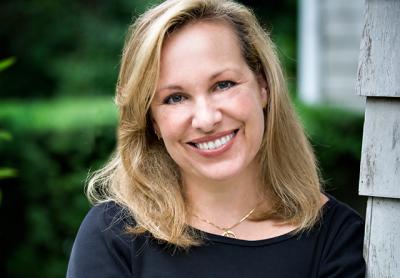Children’s Lit Fellowship Grows Up

Not unlike the small steps that babies take until they become toddlers who can run around on steady footing, the Children’s Literature Fellows program at Stony Brook Southampton has begun to grow up and come into its own.
The now four-year-old program has started to see some of its graduates join the ranks of published authors in the picture book, middle grade, and young adult literature markets. According to its founders, it attracts a higher number of applicants each year — applicants whose credentials are increasingly impressive, leading to a candidate selection process that has become more and more competitive. The program attracts prestigious mentors from the world of children’s publishing, which is said to be one of the fastest-growing genres in the publishing industry today.
The Children’s Literature Fellows program “is sort of a living, breathing thing that has continued to refine itself,” said Emma Walton Hamilton, a picture and chapter book author and Stony Brook faculty member who established the program along with Julie Sheehan, the director of Stony Brook’s creative writing master’s program, and Patricia McCormick, a faculty member and young adult author.
The fellowship program, which is a one-year, graduate-level certificate program completed remotely, was conceived when Ms. Sheehan, Ms. Hamilton, and Ms. McCormick noticed an uptick in the number of master’s candidates who wanted to focus on children’s literature. The master’s program offered a course in that genre, but nothing more intensive to support those students. Another trend, the founders noticed, was a wave of people like librarians, educators, parents, and grandparents who wanted to become children’s authors but who couldn’t take on a full graduate program.
“We realized we could really fill a void that allowed those people to train and study children’s literature from home but be mentored by the best of the best children’s writers,” Ms. Hamilton said.
Now, four years later, the program counts among its alumni writers like Erika Lewis, a California author whose young adult crossover novel “Game of Shadows” is due out in February; Janas Byrd, a Florida young adult author, and Lauren LeBlanc, who won a Work in Progress award from the Society of Children’s Book Writers.
“I needed to find something that fit in with my life. I am married and have two kids, I worked full time at the same time I was writing, it had to be something I could do where I lived, and it needed to be something that truly felt like a graduate program,” Ms. Lewis said. “I recommend this program for anyone who has been trying to get their work noticed but it isn’t quite resonating. This gives you that feedback and the tools you need to be able to edit and up your game on it, or start something fresh.”
Ms. Hamilton said children’s literature differs from the rest of publishing in that there are often “gatekeepers” involved, meaning librarians, teachers, or parents who help children choose books to read.
“An adult can walk into a library and select a book for themselves based on what they are looking for,” she said. “Children rely on these gatekeepers to put the book in their hands, and that brings with it a whole series of challenges and demands in terms of what the gatekeepers are looking for, and that changes based on a year-to-year or decade-to-decade basis. So we’re not only training our fellows to write well for their target audience, or to write well period, but we’re also training them to understand the specific nuances of children’s publishing to maximize their chances of success.”
The yearlong program entails a series of deadlines accomplished independently, and feedback from mentors who are matched to participants based on strengths and interests. Everyone comes together twice in person — once during the summer and once at the end of the program in the winter — to focus, critique, hone, and celebrate. They complete at least one manuscript. At its conclusion, the students meet in New York City, where they take part in panel discussions and pitch sessions with agents and editors.
For Ms. Hamilton, a critical moment early on was feedback from those industry professionals, who wanted to be invited back the following year to do it all again.
“They said, ‘This is a way for us to know that the person who is pitching to us has the training, has the chops, has had the support and the knowledge to do this,’ ” Ms. Hamilton said. “That was a real eye-opener for us. If the industry is saying to us, ‘We want to meet the people who are coming out of the program,’ then we must be doing something right.”
The deadline to apply for the 2017 fellowship program is Dec. 1. More information can be found online at stonybrook.edu/southampton/mfa/childrens_lit/index.html.
Correction: Lauren LeBlanc was incorrectly identified as Lauren Long in an earlier version of this story.
